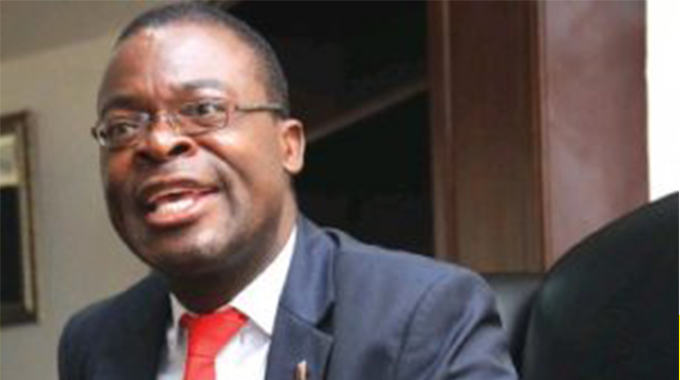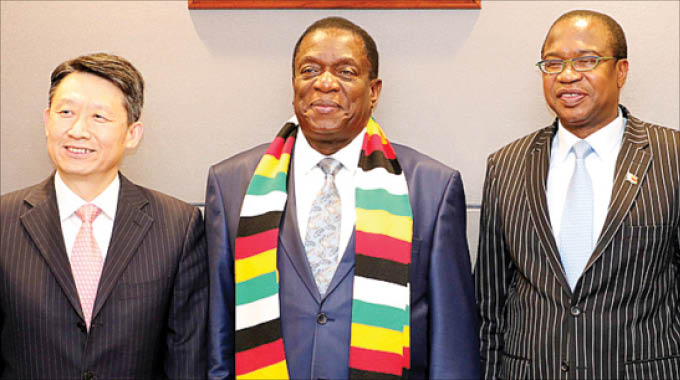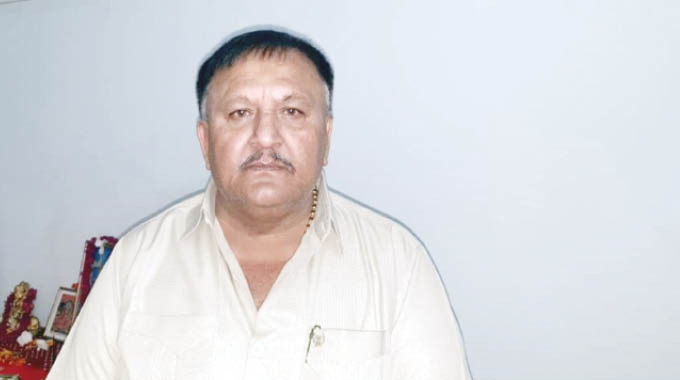Letters to the Editor: Promoting indigenous languages welcome

Beaven Dhliwayo and Tanaka Mahanya, Correspondents
The bold move by Government that entails newly qualified teachers to know at least four indigenous languages is a welcome development which will go a long way in promoting human capitalisation in the country.
Higher and Tertiary Education, Science and Technology Development Minister Professor Amon Murwira made the revelation recently during a graduation ceremony at Belvedere Technical Teachers’ College (BTTC).
Minister Murwira said Zimbabwe cannot have an education system that does not focus its practical material on its heritage, thus Government has adopted the heritage philosophy to anchor education.
“A teacher to graduate should now have at least four of the 16 official languages,” he said.
The 16 languages according to the draft constitution which are Chewa, Chibarwe, English, Kalanga, Khoisan, Nambya, Ndau, Ndebele, Shangani, Shona, Sign Language, Sotho, Tonga, Tswana, Venda and Xhosa.
Colonialism brought English in the country and any development initiatives that are crafted, documented and implemented using the medium in the case of Zimbabwe, literally exclude the majority of people.
Even with deliberate schooling, the overwhelming majority of Zimbabweans have not mastered English to a level that allows them to conduct day to day business using the language.
Prof Murwira told our sister paper, The Herald, that the new policy will be followed religiously for all new intakes going forward.
“These regulations are applied starting from May 2018 intake. Teachers who trained before that will not be affected by the new policy as it is a policy for new intakes,” he said.
The Minister’s move is both timely and relevant as the country’s indigenous languages are lagging behind in development to an extent that they may face extinction if they are not incentivised for growth.
Language is a tool for meaning and communication that develops a people’s culture and identity, hence the extinction of local languages means the wiping out of cultural norms and values in the country.
In an emailed response to our sister paper The Herald on the development, Dean of the Faculty of Arts at the University of Zimbabwe (UZ), Professor Itai Muhwati said in order to have a fuller and rewarding understanding and appreciation of the Minister’s position, there is need to look into the history of the country’s tragic misalliance with colonialism, including the design of the inherited curriculum.
“It was and still is a curriculum that has a shocking disdain for indigenous knowledge and experiences. It is no wonder that this same curriculum infected our people with what Fanon calls a ‘nervous condition’ or ‘colonial neurosis,”’ he said.
“For that reason, what the Minister is doing is a corrective. Remember language espouses a people’s heritage and their capacity for self-definition, self-naming and scientific and technological innovation.
“There is neither pedagogical nor moral justification for us to valorise European languages while marginalising those local languages that are spoken by the majority of our people. Therefore, kudos to the Honourable Minister for this policy pronouncement signalises a bold and radical paradigm shift in terms of human capitalisation in the country.
“The country inherited not just institutions, but an education system that was designed to advance and perpetuate the interests of the coloniser.”
Prof Muhwati also noted that the politically -inspired dichotomisation of the country into Mashonaland and Matabeleland engineered a dangerous linguistic obelisk that encaged people of this country into somewhat befuddling linguistic encasements.
He pointed out that language is such a powerful tool in lubricating nation building processes, fomenting togetherness and promoting harmonious living.
“The corollary of this policy pronouncement is such that Higher and Tertiary Education, under which colleges fall, becomes a vehicle for producing a critical mass of cadres who boast of multilingual proficiency.
“These become part of the intellectual crusaders in spearheading multilingual proficiency in schools throughout the country. We are therefore able to create a generation of citizens whose philosophy of life and vision of the nation debunks narrow and narrowing versions of ethnic consciousness. That way, we transform the Zimbabwean geopolitical and social space into a fluid performance zone,” said Prof Muhwati.
Promoting indigenous languages across board, he said will nurture a consciousness of tolerance, appreciation and positive togetherness.
Citing Marimba Ani (1980), he said: “To build a nation, empower its languages and inspire confidence in their usage. Lest we forget that our colonial oppressors emphasise differences in language, and customs – even physique – from one society to another.
“They do this with good reason. It is an emphasis that serves their objectives. Until we learn that it serves our objectives to emphasise the similarities, the ties, the unifying principles, the common threads and themes that bind and identify us all as African, we will continue to be politically and ideologically confused.”
He added that Prof Murwira is just championing the idea of nation that colonialism denied us. He is a nation builder.
The move should be fully funded because indigenous languages remain at the heart of cultural identities in the country.
Worth noting is that meanings and understandings in indigenous languages are likely to lose originality if translated to other languages.
Once a language has vanished, the traditional and psychological meanings are lost, hence it is important to brace indigenous languages in order to stand firm with local traditions.
The world over, indigenous languages are a powerful force that forms the identity of a group of people and contributes towards national unity.
It is part of culture and it explains the abstracts through figures of speech.
These figures of speech mostly make sense when they are derived from an indigenous language point of view.
Language is the powerful tool of communication in the world. It is intertwined with culture in such a way that they influence each other.
It is thus not surprising that language has been a key element contributing to a sense of national identity.
Language is the main form of interaction with our environment. The use of words preserves stories, traditions, culture and identity.
Moreover, indigenous languages consist of accessing a world of culture and a different conception of the world.
In Zimbabwe, the treasure of indigenous languages is a heritage that should not be lost.
Embracing local languages in schools across the country will enriches the spirit of togetherness whilst showing the differences between local traditions and their importance thereby promoting respect among them.
Additionally, education on languages must be a source of revitalisation of the cultural identity of indigenous youths.
It is important for children to receive enough comprehensible input in the indigenous languages to maintain and further develop it.
The loss of the home languages not only cost a great deal to children and their families, but also to the community as a whole and ultimately to the entire nation.
Government should ensure a policy such that at least three vernacular languages are learnt at Primary level to make them four including English, though some of them might not be examinable but only to boost the child’s understanding of vernacular languages.
From kindergarten children should learn indigenous languages to prepare them for the future.
It is easier to teach children various languages at a tender age because they easily grasp the concepts, unlike when one is mature, which might be a bit difficult.
Learning four languages at an older age can be difficult for many because such basics should be mastered at a tender age.











Comments